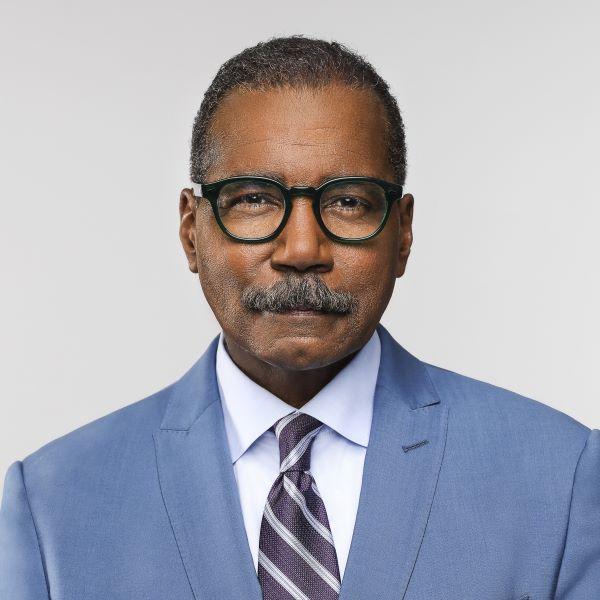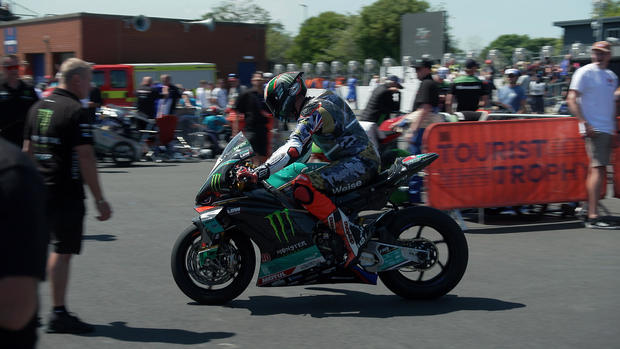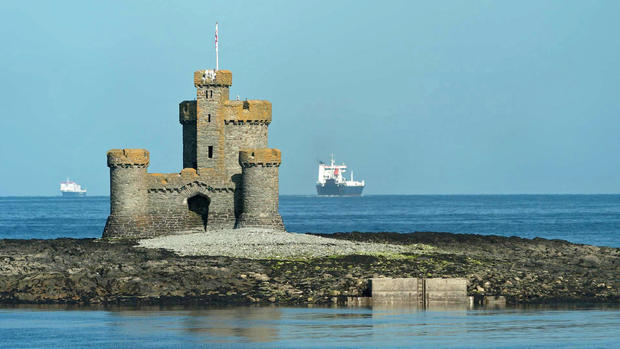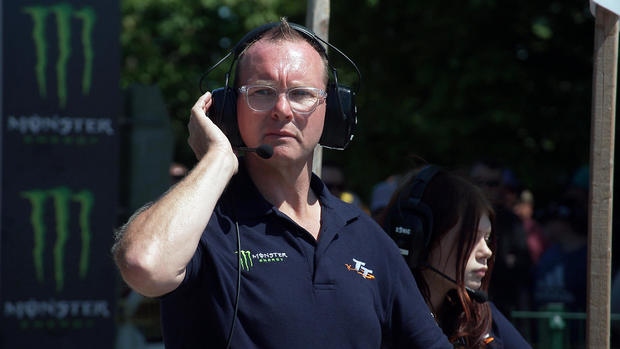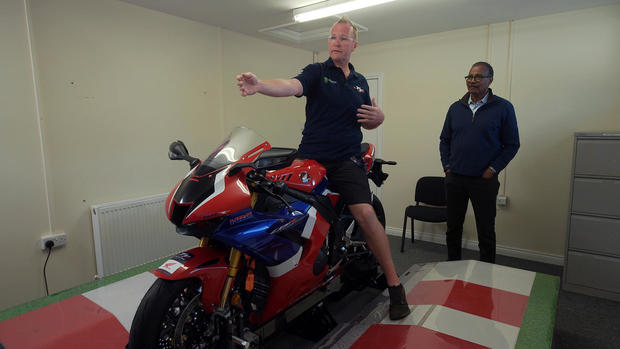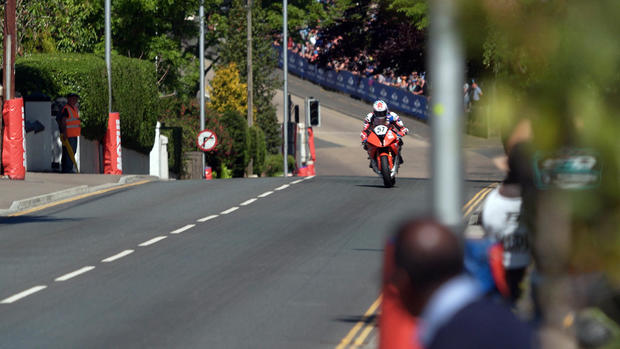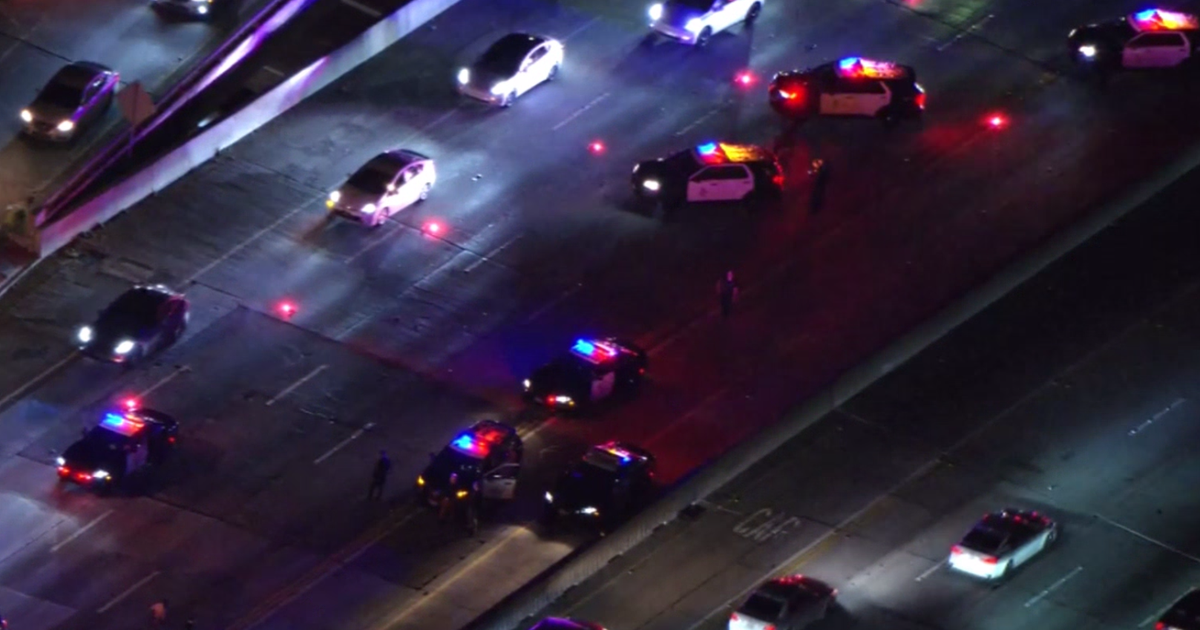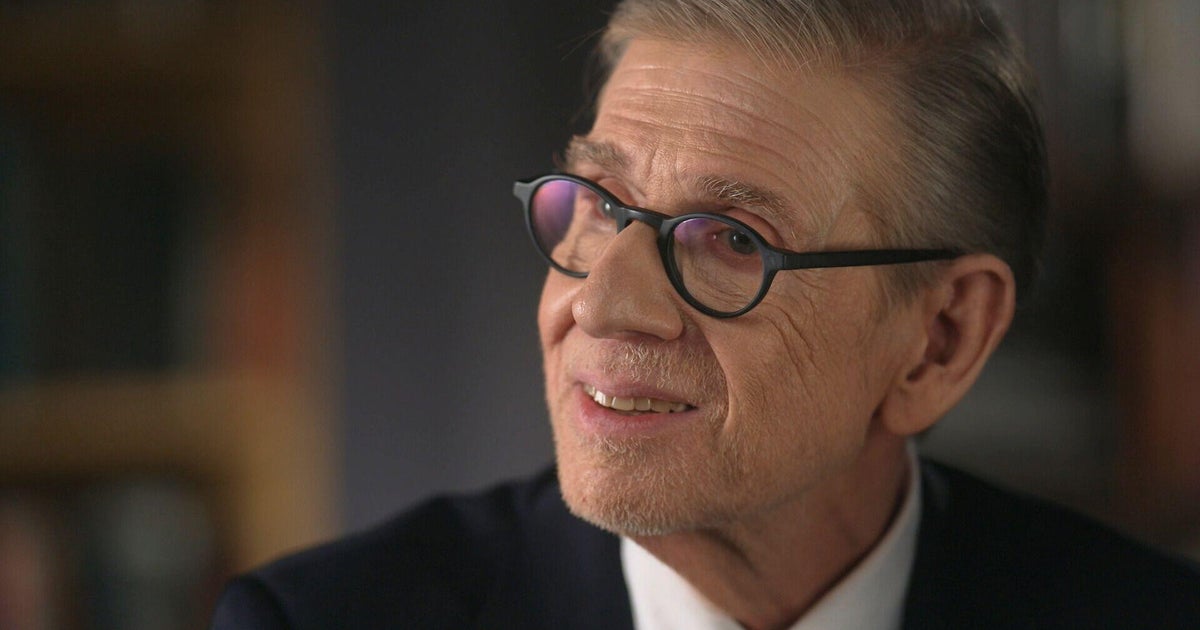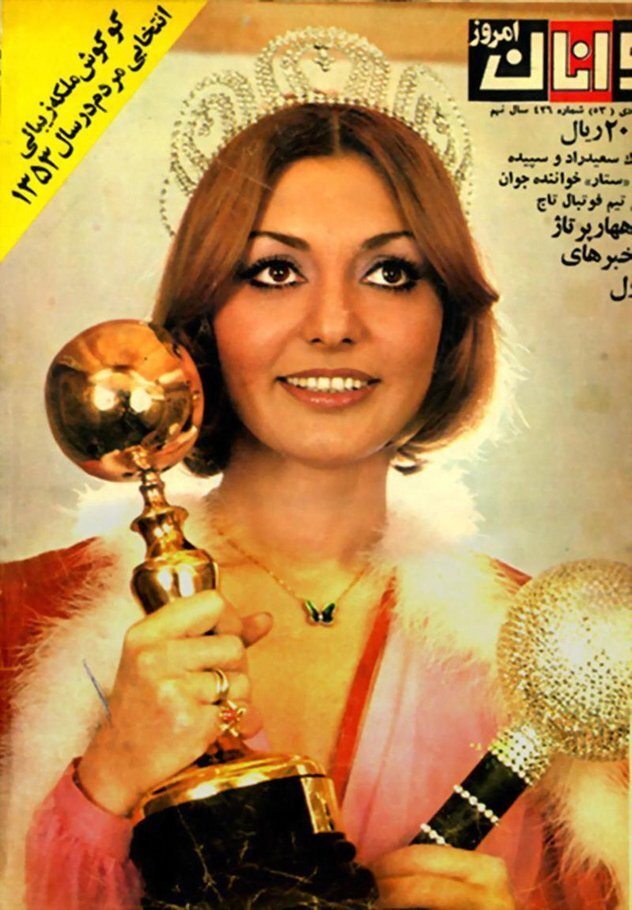Idyllic Isle of Man home to medieval castles — and TT, the world's most dangerous motorcycle race
This is an updated version of a story first published on Oct. 22,2023. The original video can be viewed here.
On a tiny island across the Atlantic, one of the world's most unusual and dangerous sporting events is about to get underway.
The 30 mile-long Isle of Man sits in the middle of the Irish Sea, with England to the east and Ireland to the west. It once was the seat of a Viking kingdom; today Britain's King Charles is head of state or lord of Man.
People born there are known as "Manx," and the isle has its own unique language, and a tailless cat, also called manx. A few hundred years ago it was known as a haven for smugglers. The buccaneers are gone…bankers have now turned the isle into a tax haven. But as we first reported last fall, what drew us to the Isle of Man was not the beauty or the banking, but a hair-raising annual event that at first glance seems totally out of place on this little jewel of an island.
With emerald fields and rugged coastlines dotted with ruins of medieval castles, the pace of life on the Isle of Man is slow, even sleepy… for 50 weeks of the year.
But for two weeks starting at the end of May, it becomes one of the loudest… fastest… most dangerous places in sport.
Peter Hickman: It's like nothing else. No matter what you've done in your life, Until you see a bike do what we're doing here, nothing compares, at all.
British motorcycle racer Peter Hickman is one of the best in the world, and a 13 time winner of a race known as the Isle of Man TT, short for both tourist trophy and time trial. Not long before we met Hickman, we watched him fly over the first jump on the course at a place known as Ago's Leap.
Bill Whitaker: We saw you go by Ago's Leap today. And truly-- it was a blur. (laughs) It was just that, like-- a speeding bullet. How f-- how fast do you think you were going when you went by there?
Peter Hickman: Ago's Leap's around 185 to 195-mile-an-hour, somewhere around there. It's top gear.
Besides the blinding speeds, what truly makes the Isle of Man TT unique is that it is run on public roads that are open to normal traffic until just 30 minutes before racing begins, on a 37-mile course that covers much of the island, running through villages and pastures, with riders taking more than 200 turns just inches from rock walls and buildings...and residents.
Peter Hickman: You literally race through a village. And it just feels like you shouldn't be doing it, but we're allowed.
Bill Whitaker: (laughs) On the Isle of Man?
Peter Hickman: On (laughs) the Isle of Man.
There's more to say about the TT – much more – but first, what is it about this tranquil isle that produces such a wild and improbable race?
Catriona Mackie: The people on the island like to do things their own way.
Catriona Mackie moved here from Scotland 15 years ago, and now teaches university students the history of the Isle of Man. She told us over the centuries, the blood and cultures of English, Irish and Viking clashed and mixed here to create the unique Manx identity.
Catriona Mackie: The Manx see themselves as, you know, we're not English, we're not Irish, we are Manx.
Bill Whitaker: From what you're telling me, the Isle of Man seems to always be finding its own path. That streak seems to define it.
Catriona Mackie: Yeah. It still has that streak of independence. And a lot of it does come from its Norse heritage.
The Norse – Vikings - sailed south from Scandinavia more than a thousand years ago in search of places to conquer.
Catriona Mackie: In 1079, Norse Gaelic ruler called Godred Crovan invaded the Isle of Man for the third time. Third time lucky for him.
Bill Whitaker: This was the seat of the Norse kingdom for a while?
Catriona Mackie: For a while. Yeah, that's right.
Contrary to their reputation, the Vikings didn't just plunder and move on. On the Isle of Man, they established a sort of parliament – called the Tynwald – that still makes the laws here.
Catriona Mackie: It is the longest continuous running parliament in the world. And it's an important part of the Manx identity.
Another important aspect of identity is the Manx language, which natives have been speaking – and singing - for nearly fifteen hundred years.
Ruth Keggin Gell works at a cultural organization dedicated to preserving and popularizing the Manx language.
(Ruth sings in Manx)
Bill Whitaker: Oh my God. That was beautiful.
Ruth Keggin Gell: Thank you.
Bill Whitaker: Why does it matter to to save the language?
Ruth Keggin Gell: My ancestors spoke Manx. So for me, it's-- it's a nice way of feeling like I'm connected. I think if we were to lose Manx, we'd be so much the poorer for it.
Manx nearly was lost. By the 1950s, after more and more English speakers visited or settled on the isle, there were fewer than 200 Manx speakers left when a concerted effort began to revive the language.
Bill Whitaker: The rebirth of the language has been described as sort of like a phoenix-like story.
Ruth Keggin Gell: Yeah. Definitely--
Bill Whitaker: Is that true?
Ruth Keggin Gell: Yeah. It's a strong, it's a resilient language. And I think there's more and more pride all the time with people embracing Manx, and seeing it as a really, really good thing. But it is just like that, the-- the phoenix rising out of the ashes. It didn't die. It got perilously close.
Today, Ruth Keggin Gell teaches adult Manx classes at a local pub, while just a few hundred yards down the road, 4 and 5-year-olds are learning to count in a Manx-language immersion school.
Ruth Keggin Gell: It's really exciting seeing people going from having, you know, one or two words in their very first lesson, you know, you're starting to introduce yourself. Mish Ruth. You know, quoi uss? Who are you? And you'd say: Mish Bill back.
Bill Whitaker: Mish Bill.
Ruth Keggin Gell: Mish Bill. Yeah.
Bill Whitaker: All right.
Ruth Keggin Gell: Yindyssagh. Well done. That's good.
Manx is spoken when the Tynwald – the Isle of Man's parliament - meets in ceremonial session. For centuries, the Tynwald has charted the isle's unique path. It was the first legislature in the world to grant women the vote. It especially asserts Manx independence in matters of taxation.
Catriona Mackie: England in the mid-17th century had raised its customs' duties. The Isle of Man didn't. So you have tobacco and tea and brandy and rum coming from Europe and elsewhere into the Isle of Man, that were then taken from the island in small boats and smuggled into England or Scotland.
Bill Whitaker: The smuggling was known as-- running.
Catriona Mackie: The running trade-- or the trade, yeah.
Bill Whitaker: The trade.
Catriona Mackie: Absolutely. Yeah.
Bill Whitaker: And it was very lucrative.
Catriona Mackie: Very, very lucrative. Yeah. It was at that point that the British government decided, "Okay, we really need to do--"
Bill Whitaker: Enough.
Catriona Mackie: --something about this. Enough is enough." Yeah.
The British effectively took control of the Isle of Man… and to this day the British monarch is head of state and has the right to veto any Manx law.
In practice, that power is almost never used, and the Isle of Man fiercely guards its independence.
Catriona Mackie: You know, we have our own tax laws. And the island is very, very proud of that.
Bill Whitaker: In a way, what was going on in the 17th and 18th century – "the trade" was - this place was kind of a tax haven.
Catriona Mackie: You--
Bill Whitaker: Back then.
Catriona Mackie: In-- in some respects, I guess you could call it that.
Bill Whitaker: And it is again today.
Catriona Mackie: Is again today. Yeah. Most companies don't pay any corporation tax at all.
Bill Whitaker: Zero.
Catriona Mackie: Zero. Their level income tax is much lower than it is elsewhere. So we have a top rate of income tax of 20%. We have a lot of people living on the island who are very, very wealthy who pay relatively little tax on the island than they would elsewhere.
The isle's total population is a little more than 80,000, but many of the world's biggest banks have a branch here. The owners of more than a thousand private jets avoid millions of dollars in taxes by registering them on the Isle of Man.
Just as it has tried to make its tax laws attractive, the Isle of Man has worked long and hard to attract tourists.
Catriona Mackie: By the 1880s, 1890s, a week's holiday by the sea had become-- a British institution really. And by 1913, just before the-- First World War, we were seeing 600,000, 650,000 people visiting the island every summer. Huge, huge, huge numbers of visitors.
Among those visitors around the turn of the 20th century were a few wealthy people who brought with them newfangled machines called motorcars.
Matthew Richardson: The speeds they were doing were-- were quite phenomenal.
According to Matthew Richardson, curator at the Manx National Heritage Museum, these were the founding fathers of the race now known as the Isle of Man TT.
Matthew Richardson: The TT began actually as a car race. That's where we get the-- the name Tourist Trophy from, because it began as a race for touring cars. There was no opportunity to race cars in the United Kingdom at this time, because parliament there had banned road closures for racing.
Bill Whitaker: And you guys just said, "Yeah. Sure. We'll close our roads down."
Matthew Richardson: Well, partly, the lieutenant government was the cousin of the chairman of the Royal Automobile Club, Sir Julian Orde. The Isle of Man economy at that time was heavily dependent on tourists coming here. And he thought that having a racing event would only bring more tourists. And he was proved to be absolutely right.
The Isle of Man's unique culture, and Manx language set them apart, but it's the race known as the TT that has really put it on the map. First held in 1907, it is the most dangerous motorcycle race on Earth; more than 250 riders have been killed over the years. Yet as we first reported last year, fans flock across the Irish Sea to watch… and racers clamor for an invitation to ride.
Richard "Milky" Quayle: Like, it is my life. It-- that's the thing. It always has been, since I was a wee boy. My dad sat me on the hedge, I watched this bike go past, and I thought, "That's what I wanna do when I grow up.
Richard "Milky" Quayle was born and raised on the Isle of Man – "a Manxman through and through" is how he puts it.
In 1997, he got his wish to race in the TT, and five years later, he won it.
Bill Whitaker: So what is it like as a Manxman to win the TT?
Richard "Milky" Quayle: Wow, well, I mean, there's only ever been three of us that have ever done it in the 118 years or whatever. So, I think it's a bit like when you-- you go to do your washing on your trousers and you have-- you stick your wash in and you-- you just-- "I'll just check the pockets before putting in," you-- you reach in there and you find £10. And, "Oh yeah, I got £10 richer." (laugh) Well, if you can multiply that by a million, that's what it's like to win a TT. It's just like, "Woohoo." (laugh)
The actual prize money is minuscule compared to other professional sports; the winner of last year's top class TT race won just over $30,000. There are five classes in all, dictated by the power of the motorcycle and the number of laps. Riders are constantly braking, shifting, and twisting the throttle… thousands of times every lap.
Then there is the "sidecar" race: three-wheeled contraptions that scream around the course with a driver and a passenger whose job is to throw their weight around every curve, just inches off the ground.
Bill Whitaker: And what about the sidecar?
Richard "Milky" Quayle: I'm crazy and mental, but the sidecars. They're-- (laugh) they're alone to themselves, they are. I would never-- you'd never get me on a sidecar. I'm not, not into that. I love speed. I love fast bikes, fast cars, fast jet skis, fast anything. But nah, sidecars, no, no. (laugh) I draw the line at that.
You need only to look at old photos to see how the race has changed. Early sidecar outfits looked like what you might see on the street…today they resemble angry, mutant bobsleds.
The first motorcycles were basically bicycles with engines strapped on. Today's bikes are bullets, ridden by some of the top pro-racers in the world.
Milky Quayle gave us a taste of what it's like to ride the course with a bike mounted on a simulator.
Richard "Milky" Quayle: Up towards the Black Dog. So the whole left--
Bill Whitaker: Wow, this is incredible.
And an actual lap playing on a screen in front of him.
Richard "Milky" Quayle: Over to the left. And then I'm over to the right. Ugh. It takes so much physical effort to get the thing to turn through there. So this is Sulby Straight now, Bill. This is one of the fastest points on the circuit.
Bill Whitaker: Everything's a blur going by you.
Richard "Milky" Quayle: 190, 195, 200 miles an hour here.
Bill Whitaker: This is nuts. You know that, (laughs) right?
Richard "Milky" Quayle: Well, it's-- it's fun though. It-- it's fun, Bill.
He knows a lot of people won't 'get' his definition of fun.
Bill Whitaker: Now, the last time you raced, as-- as a rider was, what, 20 years ago-
Richard "Milky" Quayle: Twenty years ago now, yeah. Yeah, yeah.
Bill Whitaker: It nearly killed you? Didn't it?
Richard "Milky" Quayle: Yeah. Yeah, (laughs) yeah.
Richard "Milky" Quayle: Yeah, it did. But, I mean, --
Bill Whitaker: What happened?
Richard "Milky" Quayle: I made one little mistake and--
Bill Whitaker: What-- what-- what was your mistake?
Richard "Milky" Quayle: I just literally entered the corner too early. I just caught the rockface with my shoulder. I just snagged it, pulled me into the wall on the right. And then I flew over and hit that one on the left. And, yeah, that's the-- that's the flipside of the coin, isn't it? It's just, you know, when it goes bad it-- you know, it-- it can hurt you.
The crash in 2003 ruptured his spleen and punctured both of his lungs, among other injuries.
Richard "Milky" Quayle: I remember I was lying in hospital bed and a journalist came in to see me. They wanted an interview and stuff. And he was trying to put words in me mouth like, "Oh, well, you-- you must hate it then, mustn't you? You must-- it's dangerous. You want-- must wanna s-- get it stopped." And it was like, "You what? Why-- why would I wanna stop it?" It's the best thing in the world anyone could ever wanna do. Why would I want s-- to stop it just because it hurt me?
Paul Phillips: The only way of making this event safe is to not do it, you know? If we're gonna race sports bikes through towns and villages on public roads, that inherent danger is going to be there.
Paul Phillips is the man who has been in overall charge of the Isle of Man TT for the last 15 years.
Paul Phillips: The bikes start in single file. They travel so, so fast-- where, you know, the speed limit is-- is, you know, generally through villages and towns, 30 or 40 miles per hour.And they're going through them at 200 miles per hour.
Bill Whitaker: I'm not sure you know how crazy what you just said to-- it's like, you go through a village where you're usually driving 35 miles an hour, and these guys are going 200 miles an hour through these villages. That's wild.
Paul Phillips: It IS wild. Yeah, it is.
Bill Whitaker: Some people in our audience who are not really familiar with the race would be surprised at the-- the casualty statistics: 250 casualties over the years. You know that's got some people, you know, sort of howling that this race is too dangerous, it-- it shouldn't be.
Paul Phillips: I totally understand that. And you know this event really does embody the sort of human spirit. Nobody is forced to come and do this. And this event does kind of give-- human beings a opportunity to kind of test themselves, and push their boundaries, and-- and live their lives to the absolute limit.
Bill Whitaker: Like the ultimate expression of free will?
Paul Phillips: Yeah.
Bill Whitaker: Yeah, even if that free will can get you killed?
Paul Phillips: So it seems, yeah.
Peter Hickman: To be honest, as a rider, you don't really think about it.
Peter Hickman has won 13 TT races, including last year's marquee race, the "Senior TT" – 225 miles over six grueling laps.
Peter Hickman: As a rider, we have already accepted if someone's here and riding and signed up, we've already accepted what that consequence is if we make a mistake.
Bill Whitaker: What do you say to the people who say, "It's-- it's too dangerous"?
Richard "Milky" Quayle: Everyone's-- everyone's entitled to their own opinion, Bill. That's the way I look at it, you know? And, again, in-- in today's world, where you can't do this, you can't do that, you can't do the other, the Isle of Man is the last place, I think, in the world where the man can push himself to his limits . I think a TT rider is the modern-day dragon slayer of the world, you know? He wants to prove that he is, you know, an alpha male (grunts)
Organizers of the TT have taken steps to minimize risk where they can. Riders are sent off the start line at 10-second intervals to make space between them, but passes - with not-an-inch-to-spare - still happen.
There is a sophisticated control room where race managers can monitor every rider on the course.
Bill Whitaker: So it's sort of like-- air traffic control?
Gary Thompson: Yeah, it's–
Bill Whitaker: That's what-- sort of what it looks like, you're in an air (laugh) traffic control center–
Gary Thompson: Absolutely.
Gary Thompson is the man in charge of the control tower; what's known as the clerk of the course.
Gary Thompson: This afternoon we're gonna close the roads at 12:30, and then 30 minutes later we're gonna have bikes racing down Glencrutchery Road at nearly 200 mile an hour. So in 30 minutes we'll have turned a public highway into a racing circuit-- with 602 marshals in position-- with a course locked down, ready to race. And over 37 and three quarter miles, that's pretty special. Pretty special.
Perhaps the most significant change has been to strictly limit the number of racers, to just over 30 sidecar teams and 100 solo riders.
Bill Whitaker: How important is it just to determine that-- a rider is good enough to be on this course?
Paul Phillips: Very. One of the things when I first started working on the TT was that that wasn't the case. You know, there were people coming here who were ill-prepared.
Now, there's a strict protocol for would-be first-time racers, and Milky Quayle is a key part of it.
Rennie Scaysbrook: Okay, right.
He first takes newcomers around the course in a car.
Then, during practice week, he leads them on an actual lap, to see how they perform … and whether they can keep up.
Bill Whitaker: What, are you looking to see if they're good enough to--
Richard "Milky" Quayle: Yeah, and--
Bill Whitaker: --to actually be in the race?
Richard "Milky" Quayle: Yeah, basically. It's a bit like applying for a job. you have to have a good racing CV. So that's the first initial thing that we do, is we go, "Who is he? What's he done before?" So if he's d-- if he's a good rider, that's-- an instant plus tick, you know? It's like, "Okay, well, he-- he knows how to handle a motorbike."
Bill Whitaker: Do you ever have someone you're taking around and you go-- "They're not ready"?
Richard "Milky" Quayle: Yeah. I've been doin'—now 18 years I've been teachin' people. And in the 18 years I've probably had about five people that I've said, "No, your not ready. You need to go back and do a bit more studyin'.
Rennie Scaysbrook: I remember going behind-- when I was behind "Milky" Quayle on my initiation lap. And I actually screamed in my helmet. I went, "This is f-ing crazy."
Rennie Scaysbrook made Milky's "cut." An Australian now living in California, he is a full-time motorcycle journalist … and a part-time racer who was invited here after winning the Pike's Peak race in the U.S. His first TT was in 2022, when six riders were killed.
Rennie Scaysbrook: There's some really awful stuff that happens here. You can't sugarcoat it. But on the other side, you know, it is the most incredible place to ride a motorcycle. Like, -- the danger's up here, the exhilaration's up here. It's so unlike anything else. You ask any motorcyclist, and you say, "The Isle of Man TT," and they all-- they all know. You know, it's like saying, "You ever heard of Michael Jordan?" Like, yeah, you might not like basketball, but you know who Michael Jordan is. The TT is a bit like that.
Bill Whitaker: What's the appeal of racing so fast on public roads, through towns, past schools, past grandma's house, what's the appeal of this race?
Rennie Scaysbrook: Because you can't do it anywhere else. you can't believe that you're allowed to do it. Like, everything that you're doing is so illegal everywhere else in the world. And then you just see this (makes noise) like, the things that just-- the buildings are ripping past you. And, like, there's no gap between the building and the-- the pavement. There's no footpath. So, like, -- someone's bedroom window is only, like, that far away and you're doing 165 miles an hour. It's like-- it's completely mad. It's awesome. (laughter)
Bill Whitaker: It's mad. It's awesome--
Rennie Scaysbrook: It's-- it's awesome.
During practice week, we met one of the ferries - the primary means of getting to the island - and watched as hundreds upon hundreds of racing fans rolled off. To accommodate the 40,000 fans who come to the race, almost every soccer and rugby field becomes a campground, and the roads – while they're open - are clogged with riders.
Richard "Milky" Quayle: The fan can run in off the boat, sit on the side of the road, watch the hero go past. Half an hour later, after the road's open, they can ride on the same track. It is the best. It is the best, Bill, you know? It's the best.
There's no admission fee to watch, and the paddock is open to all; here fans can touch the stars. But one visit to the merchandise tent is all it takes to know that this is a commercial bonanza for the isle.
Paul Phillips: And make no mistake, that's what it exists for. It exists for economic reasons. It exists to bring people to our island, and for no other reason. It doesn't exist because we like motorbikes. We do like motorbikes, but that's not why it exists.
One rider was killed in last year's TT, 46-year-old Spaniard Raul Torras Martinez. That there was "just" one death – after the six racers killed in 2022 - was a relief to organizers, but also a reminder of the risk that has run through these winding roads for more than a century.
Rennie Scaysbrook: A lot of people don't grasp just how wild the event really is. I mean, I'm a part-time racer. I can steer a bike okay. But I'm not the level of these guys. You know, I mean, they do stuff that I just go, "I have no idea how you do it."
Announcer #1: Wow. That's brave.
Announcer #2: Yeah, that's heart in your mouth.
Peter Hickman is one of those guys. Last year, while winning four races, he set a new all-time speed record for a single lap.
Bill Whitaker: What's the trickiest part? Wha-- or maybe it's the same thing. What's the most dangerous part?
Peter Hickman: It's all tricky. It's all complicated. It's all dangerous if you get it wrong. You know, there's only a few corners that are very slow, that are probably 30, 40-mile-an-hour, maybe. 95% of the lap I would say is over 160 miles an hour, hence why the average speed's well over 130. You have to be at 110% concentration, 110% of the time.
Bill Whitaker: What's your explanation for why you do this?
Peter Hickman: This makes me feel alive.
Bill Whitaker: Makes you feel alive?
Peter Hickman: Yeah.
Bill Whitaker: Y-- you can't just leave it like that. (laughs) You gotta expound, explain. What do you mean?
Peter Hickman: I think you can only really appreciate life if you're putting yourself into places that risk it.
Produced by Rome Hartman. Field producer, Ian Kelly. Associate producer, Sara Kuzmarov. Broadcast associate, Mariah B. Campbell. Edited by Sean Kelly.
